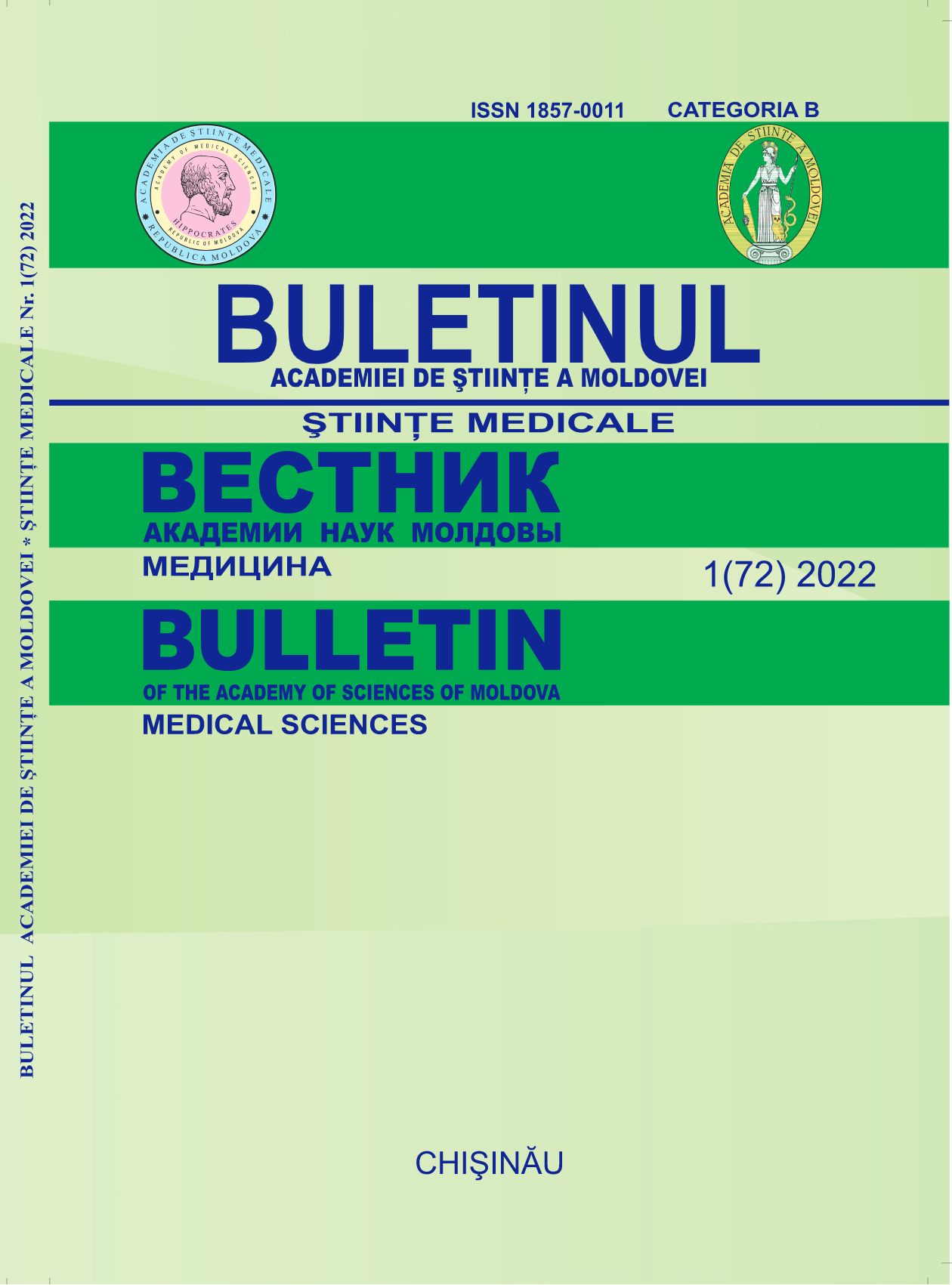Antihypertensive effect of renal artery denervation performed with various generations of catheters.
DOI:
https://doi.org/10.52692/1857-0011.2022.1-72.01Keywords:
denervation of renal arteries, resistant hypertensionAbstract
The treatment of resistant hypertension remains difficult despite the progress made in the development of antihypertensive remedies. In this context, renal artery denervation has been shown to be effective and safe in clinical trials published over the past three years. The complex ablation of the main renal arteries and their small branches with a diameter over 4 mm obtained with second-generation catheters has demonstrated its superiority in reducing blood pressure compared to first-generation catheters, which allowed ablation to be performed only in the main branches of the renal arteries.
The present paper presents part of the research conducted in the Department of Hypertension, its purpose being to
evaluate the effectiveness of renal denervation in patients with resistant hypertension.
References
Kearney PM., Whelton M., Reynolds K., Muntner P.,Whelton PK., He J. Global burden of hypertension: analysisof worldwide data. Lancet., 2005; 365, p. 217–223.
Kotseva K., The EUROASPIRE surveys: lessons learned in cardiovascular disease prevention. Cardiovascular Diagnosis Therapy., 2017; 7(6) , pp. 633-639. doi:10.21037/cdt.2017.04.06.
Bhatt D.L., Kandzari D.E., O’Neill W.W., et al., A controlled trial of renal denervation for resistant hyperten10 sion. New England Journal of Medicine., 2014; 370, pp.1393 – 1401.
Townsend R.R., Mahfoud F., Kandzari D.E., et al.,Catheter-based renal denervation in patients with uncontrolled hypertension in the absence of antihypertensive medications (SPYRAL HTN-OFF MED): a randomised, sham-controlled, proof-of-concept trial. Lancet., 2017;390, pp. 2160 – 2170.
Azizi M., Schmieder R.E., Mahfoud F., et al., Endovascular ultrasound renal denervation to treat hypertension (RADIANCE-HTN SOLO): a multicentre, international, single-blind, randomised, sham-controlled trial. Lancet., 2018; 391, pp. 2335 – 2345.
Böhm M., Kario K., Kandzari D.E., et al., Efficacy of catheter-based renal denervation in the absence of antihypertensive medications (SPYRAL HTN-OFF MED pivotal): a multicentre, randomised, sham-controlled trial. Lancet., 2020; 395, pp. 1444 – 1451.
Kandzari D.E., Böhm M., Mahfoud F., et al., SPYRAL HTN-ON MED Trial Investigators., Effect of renal denervation on blood pressure in the presence of antihypertensive drugs: 6-month efficacy and safety results from the SPYRAL HTN-ON MED proof-of-concept randomised trial. Lancet., 2018; 391, pp. 2346 – 2355.
Azizi M., Sanghvi K., Saxena M., et al., Ultrasound renal denervation for hypertension resistant to a triple medication pill (RADIANCE-HTN TRIO): a randomised, multicentre, single-blind, sham-controlled trial. Lancet., 2021; 397, pp. 2476 – 2486.
Downloads
Published
Issue
Section
License
Copyright (c) 2022 Bulletin of the Academy of Sciences of Moldova. Medical Sciences

This work is licensed under a Creative Commons Attribution 4.0 International License.



